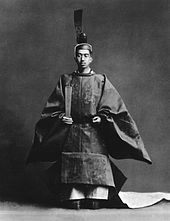 Today is a national holiday in Japan, called Showa Day. It is celebrated in remembrance of the last – the Showa – Emperor (Hirohito) who was born today in 1901, acceded to the throne in 1926 and died in 1989.
Today is a national holiday in Japan, called Showa Day. It is celebrated in remembrance of the last – the Showa – Emperor (Hirohito) who was born today in 1901, acceded to the throne in 1926 and died in 1989.
Showa Day has only been called that since 2007, when the main opposition party finally gave green light to the renaming of the day (which had been celebrated since 1989 as Greenery Day). However, they proposed that the day was not supposed to be a holiday to celebrate, but rather one to reflect on the Showa emperor’s 63 years of reign. His reign – the longest of any monarch in Japanese history so far – was a quite turbulent one with lots of major events taking place, not just in Japan, but all over the world.
Just to name a few of these events:
Economic collapse starting in 1928 leaving many people unemployed and starving.
Japanese invasion of Manchuria in 1931 and the installment of a government there under the Chinese emperor Pu-Yi. Some historians count this as the start of the World War II.
The second Sino-Japanese War starting in 1937.Entering World War II by creating the Rome-Tokyo-Berlin Axis in 1940 and the attack on Pearl Harbor one year later.
Surrendering in 1945 after two atomic bombs had been dropped on Hiroshima and Nagasaki, the total Japanese death toll mounting to around 2.7 million people, among them 600.000 civilians.
Occupation of Japan, which saw a complete change in government and the first democratic elections in 1946, where women were allowed to vote for the first time.
Japan became a sovereign nation again in 1952, after the signing of the San Francisco Treaty with the United States.
The “economic miracle” of Japan starting in the 1950s, where the economy grew three times as fast as that of other major nations. By the end of the Showa era (in fact until 2011), the Japanese economy was the second largest one in the world.
